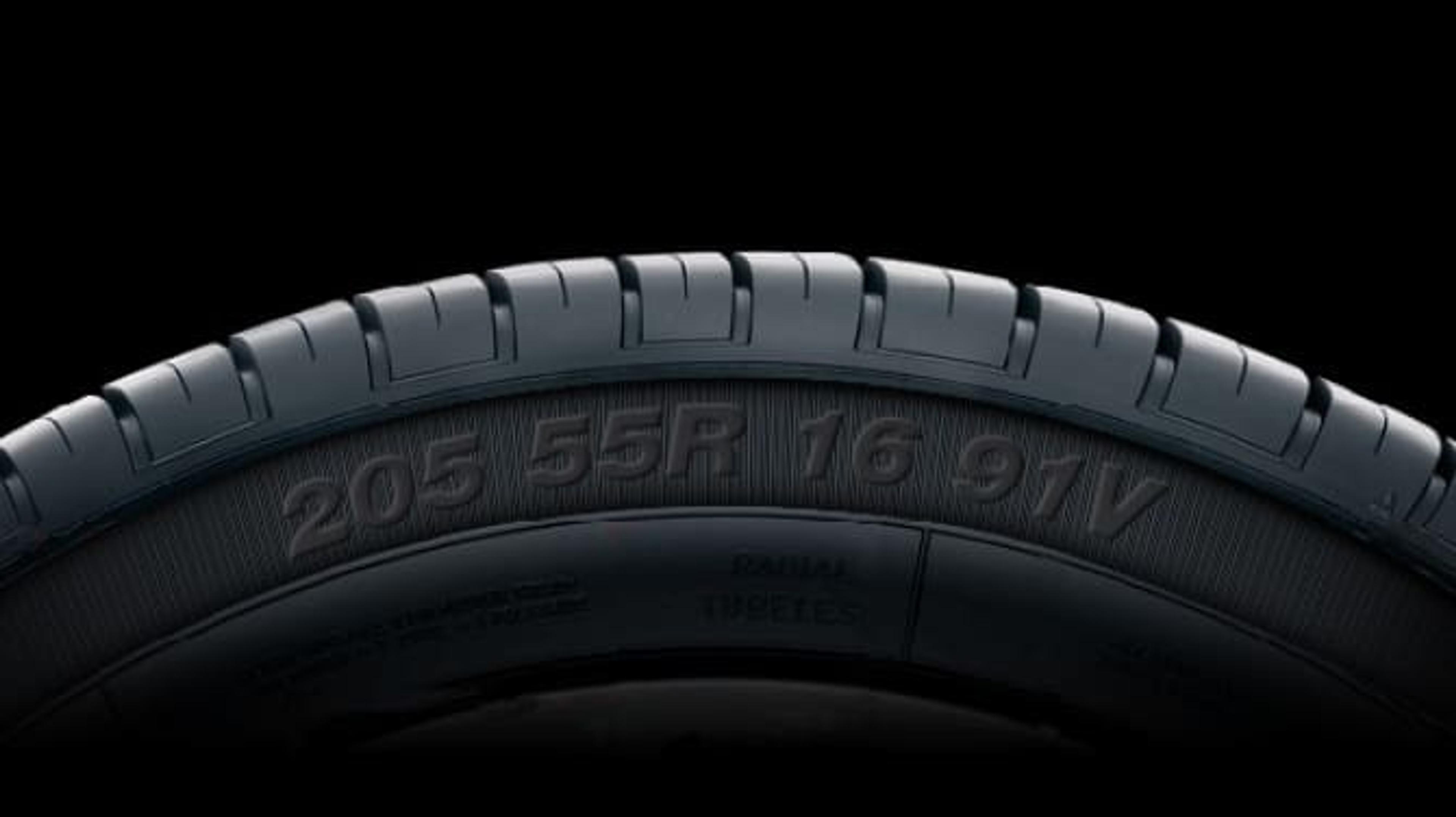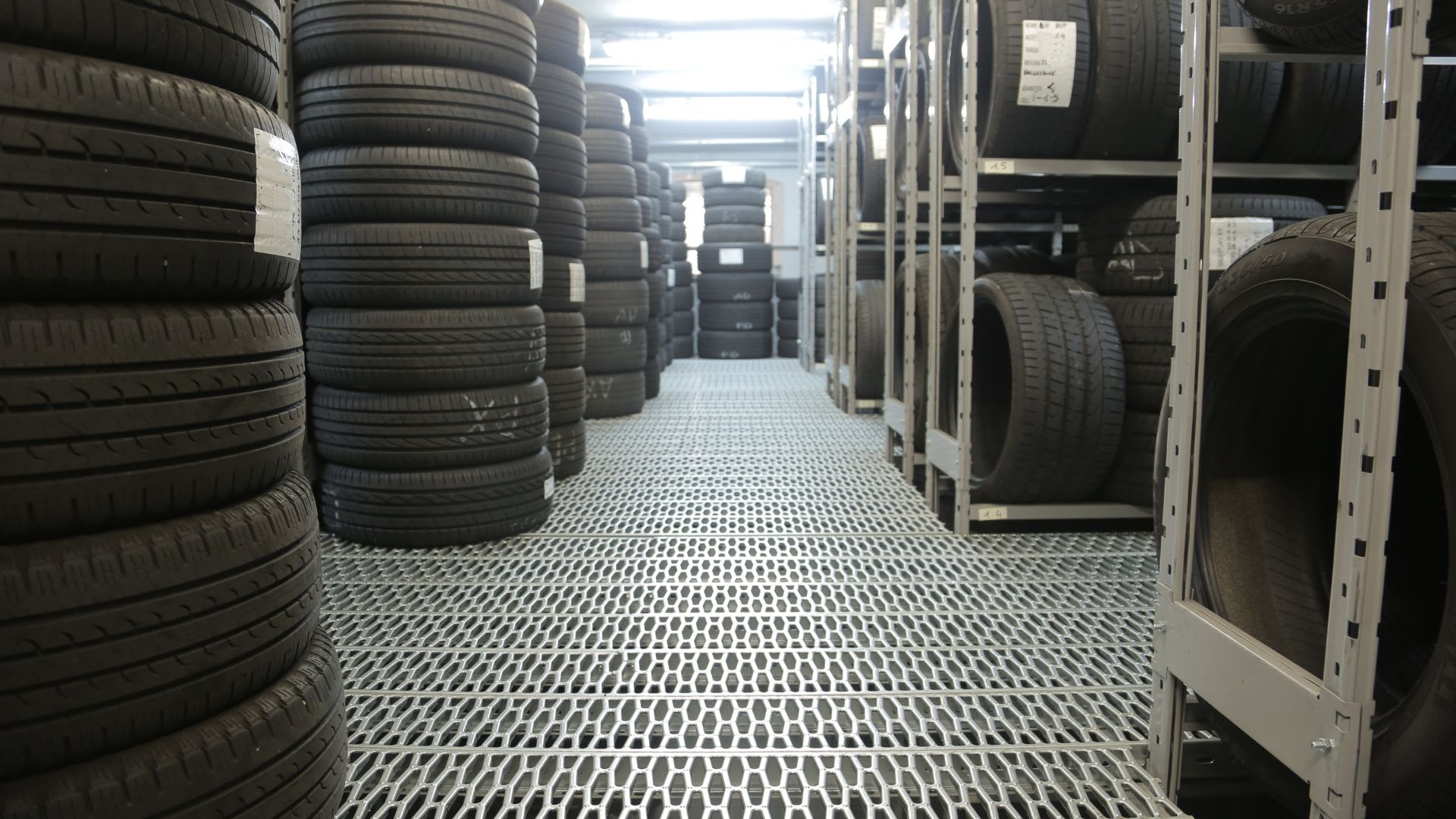Tire Buying Guides
How to Find OEM Factory Tires for Your Vehicle
A simple guide to figuring out your original equipment manufacturer (OEM) factory tires

Free shipping
Best price guarantee
Special pricing
Financing with Resolve
Easy returns
Tire Buying Guides
A simple guide to figuring out your original equipment manufacturer (OEM) factory tires

Every vehicle rolls off the assembly line with a carefully selected set of tires designed to complement its specific performance characteristics. These original equipment manufacturer (OEM) factory tires represent years of collaborative engineering between automakers and tire manufacturers.
Finding the exact replacement for your vehicle's original tires can seem daunting when faced with thousands of tire options in the market. However, understanding what makes OEM tires unique and knowing how to identify them simplifies the selection process significantly.
Whether you're replacing worn tires or maintaining your vehicle's original specifications, choosing the right OEM tires ensures your car performs exactly as the manufacturer intended. This guide walks through the essential steps to locate and purchase the correct factory tires for your specific vehicle.
OEM factory tires, also known as original equipment tires, are the specific tires that come standard on your vehicle when it leaves the manufacturing facility. These aren't random selections—automakers work directly with tire manufacturers throughout the vehicle development process to create tires that optimize the car's ride quality, handling characteristics, fuel efficiency, and safety features. The collaboration begins early in the design phase, with tire engineers and vehicle designers working together to ensure the tires complement the suspension tuning, weight distribution, and intended driving experience of each model.
The development of OEM tires involves extensive testing and fine-tuning to achieve the perfect balance of performance attributes. Manufacturers use spider charts to analyze multiple characteristics: tread life, wet traction, dry handling, road noise, ride comfort, and rolling resistance. Each vehicle model receives tires specifically engineered to match its unique requirements—a luxury sedan might prioritize quiet operation and comfort, while a sports car's OEM tires emphasize responsive handling and high-speed stability. This customization extends beyond just performance; OEM tires are designed to work harmoniously with the vehicle's advanced safety systems, including traction control, stability management, and anti-lock braking systems.
Many OEM tires feature special markings on their sidewalls to indicate manufacturer approval:
These designations confirm that the tire meets the exact specifications required by the automaker, including load capacity, speed rating, and performance characteristics tailored to that specific vehicle platform.

To commence searching for OEM factory tires, first gather all pertinent details about your vehicle. This initial step is crucial for identifying the precise tires needed to maintain your vehicle's performance standards. Start by locating your vehicle identification number (VIN), which is typically found on the dashboard or inside the driver's side door frame. The VIN provides a wealth of information, including the make, model, and year, which are essential for pinpointing the correct tire specifications.
Consult the owner’s manual for detailed tire specifications. This manual contains vital information such as the recommended tire size, load index, and speed rating, all of which are essential for preserving your vehicle’s intended handling and safety features. By adhering to these specifications, you ensure that your vehicle retains its original balance and performance characteristics as intended by the manufacturer.
With your vehicle's specifications in hand, utilize SimpleTire to assist in your search. Input the make, model, and year of your vehicle into a trusted tire search tool. These platforms often allow users to filter results to show options marked 'Original Equipment', confirming their compatibility with your vehicle. Look for labels or tags that identify OEM fitments, providing confidence that these tires adhere to manufacturer standards.
Seeking advice from a tire specialist at SimpleTire can further ensure accuracy. The professional team at SimpleTire confirms the correct OEM tire fitment. Specialists can provide insights into tire performance, durability, and compatibility with your driving style and local road conditions. Their expertise ensures you choose tires that meet OEM standards and suit your personal driving needs.
Armed with the necessary information and professional insights, proceed to purchase your OEM tires from a reputable source. Compare prices and reviews to secure the best deal, ensuring the seller offers warranties or guarantees on their products—such as those available at SimpleTire. A trustworthy tire-buying option like SimpleTire gives you confidence that you’re acquiring high-quality tires that match your vehicle's original specifications.
Begin your search for OEM factory tires by pinpointing your vehicle's exact specifications. Locate the unique 17-digit vehicle identification number (VIN) on the lower corner of the windshield or inside the door jamb. This number provides crucial details about your vehicle, including its original factory configuration and components.
Once you have the VIN, reference the tire information placard located on the driver’s side door frame. This placard offers essential data on tire size, pressure, and other key specifications required for optimal performance and safety. Additionally, consult the owner’s manual for comprehensive guidance on tire fitment and compatibility—ensuring you adhere to the manufacturer's recommendations for maintaining the vehicle's intended performance characteristics.
In addition to these resources, using an online VIN decoder tool can further assist in confirming the original tire specifications. This tool cross-references the VIN with manufacturer databases to provide a detailed report on your vehicle’s factory settings, including the tires specified by the automaker. By thoroughly consulting these resources, you are well-equipped to choose the correct OEM tires, ensuring your vehicle continues to perform as designed.
Leveraging digital platforms like SimpleTire can streamline the process of locating OEM factory tires. Start by navigating to a trusted online tire marketplace like SimpleTire and inputting your vehicle’s key details. These platforms curate a selection of tires specifically suited for your vehicle's requirements. Use search filters to pinpoint options labeled as 'Original Equipment', ensuring they meet the precise criteria set by your vehicle's manufacturer, which assures you of the tires' compatibility with your vehicle's original design and performance.
As you browse SimpleTire, focus on the product descriptions and technical specifications available for each tire. Check for alignment with your vehicle's recommended specifications, such as the correct tire dimensions and performance ratings. SimpleTire also offers customer feedback and professional evaluations to provide additional insights on tire performance, longevity, and suitability for various driving conditions.
Beyond basic search functions, some online tools offer advanced features to aid your decision-making. For instance, you might find comparison charts that allow you to evaluate multiple tire options side by side, considering factors like durability, traction, and noise levels. Cost estimation tools can also help you budget for your purchase by factoring in additional costs like shipping and installation. Utilizing these comprehensive online resources equips you with the information needed to select the best OEM tires for your vehicle’s specific needs.
 Engaging with a tire expert at SimpleTire provides crucial insights during your tire selection process. Seek out a professional at SimpleTire who can confirm the precise fitment of OEM tires suited to your vehicle's unique design. These experts stand equipped with detailed knowledge of tire specifications and can offer guidance tailored to enhance your vehicle's original performance characteristics.
Engaging with a tire expert at SimpleTire provides crucial insights during your tire selection process. Seek out a professional at SimpleTire who can confirm the precise fitment of OEM tires suited to your vehicle's unique design. These experts stand equipped with detailed knowledge of tire specifications and can offer guidance tailored to enhance your vehicle's original performance characteristics.
A professional's role extends well beyond simple verification. They evaluate tire options by considering critical factors like load index, speed rating, and material composition. This thorough assessment ensures that the chosen tires work harmoniously with your vehicle’s systems, such as traction control and braking. By doing so, they help prevent issues that might arise from improper tire choices, like reduced handling capabilities or compromised safety.
Furthermore, tire professionals keep abreast of industry innovations and safety updates. Their expertise includes identifying how emerging technologies can be integrated to improve your vehicle's dynamics, offering suggestions that might not be immediately evident through digital resources alone. This collaboration with a professional ensures your tires not only meet OEM standards but also align with your specific driving aspirations.
Finding a trustworthy supplier guarantees the authenticity and quality of your OEM tires. Begin by exploring well-established online platform like SimpleTire that specializes in OEM tire options. SimpleTire offers tools to sort by price, brand, and customer feedback, allowing you to assess different deals and make informed decisions without sacrificing the necessary specifications for your vehicle.
Customer feedback provides crucial insights into the reliability of a supplier. Detailed reviews often discuss aspects like order accuracy, delivery efficiency, and overall satisfaction with the purchase. Such information helps gauge the supplier's dependability and the overall experience they offer. Additionally, choosing suppliers that provide clear contact information and support can be reassuring, ensuring any potential issues are resolved smoothly.
Ensure the supplier offers strong assurances regarding their products. A solid assurance policy indicates that the tires meet quality standards and that the supplier stands behind their products. Review the terms of these assurances, including what is covered and the process for addressing any concerns. Selecting a supplier who provides these assurances enhances your confidence in maintaining your vehicle's performance and safety standards.

Securing the right tire size is essential for preserving your vehicle’s functionality. Look for the tire size code, often found on the tire’s sidewall or in your vehicle's documentation, which includes critical specifications like width, aspect ratio, and diameter (e.g., 235/55R19). These numbers ensure that the tire will fit properly and perform as intended by the manufacturer.
The load rating is equally vital, as it indicates how much weight the tire can support without risking damage. This rating aligns with your vehicle's maximum load capacity, ensuring that the tires can handle both passengers and cargo efficiently. By confirming the load index matches your vehicle’s design, you avoid potential issues from overstressing the tires.
The environment in which you drive most often plays a significant role in selecting the right OEM tires. For those who encounter diverse weather conditions, all-season tires offer adaptability and reliability across different climates. These tires provide a good balance of grip and durability, suitable for drivers looking for consistent performance throughout the year.
If you value enhanced handling and precision, performance tires are an excellent choice. They are crafted with specialized tread patterns and compounds to improve traction and responsiveness, making them ideal for drivers who enjoy dynamic driving. Evaluate your typical driving conditions, including climate and road quality, to choose tires that will meet your specific needs effectively.
OEM tires are crafted to match the specific engineering and safety criteria set by the vehicle's manufacturer. These tires integrate seamlessly with your vehicle’s systems, such as stability control and braking, ensuring optimum performance and safety. Opting for OEM tires helps maintain the original balance and functionality of your vehicle's components.
Comfort is another key advantage, as OEM tires are designed to reduce road noise and vibration, providing a smooth ride. They ensure that the driving experience remains consistent with what the manufacturer intended, balancing comfort with performance. This comprehensive design approach ensures that every aspect of your driving experience aligns with the vehicle’s original setup.
Finding the right OEM factory tires ensures your vehicle maintains its designed performance, safety, and comfort levels exactly as the manufacturer intended. By following these steps and understanding your vehicle's specific requirements, you can confidently select tires that preserve your car's original driving characteristics. When you're ready to make your purchase, we invite you to shop for tires online and find the best deals with us, where finding the perfect OEM tires for your vehicle is simple and convenient.
Search By